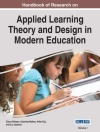The quality, resourcing and accessibility of healthcare is a key issue facing societies in the 21st century. Despite the system delivery focus of these factors it is critical to remember that healthcare is a human service and as such, people need to be placed at the centre of healthcare systems and processes. To do this we need to improve the way that people are valued and involved in healthcare practices. Professional relationships lie at the heart of such practices. This book illuminates and challenges professional healthcare relationships. The authors examine the nature, context and purpose of healthcare relationships, explore models through which these relationships are enacted, developed and critiqued, and provide narratives of health practice relationships in action. These narratives reveal how health practice relationships are experienced and created in real-world situations. The various chapters generate a range of implications and recommendations for healthcare practice and systems and for the education of health professionals. This is a book for practitioners, educators, clients, members of the community, advocacy and agency groups, regulatory bodies and those with power to shape the future direction of healthcare. There are four sections in the book: Section 1: Health practice relationships context Section 2: Understanding professional relationships Section 3: Health practice relationships narratives Section 4: Implications for practice, systems and education
Tabella dei contenuti
Series Introduction: Practice, Education, Work and Society; Foreword; Section 1: Health practice relationships context; 1. Health practice relationships; 2. Professional practice; 3. Healthcare systems and spaces; 4. Changing directions in healthcare; 5. Patient-centred context of health practice relationships; Section 2: Understanding professional relationships; 6. Professionalism and relationships: Balancing interests; 7. Negotiating healthcare relationships through communication; 8. Working in teams: Where is the client?; 9. Collaboration and collaborating; 10. People caring: Negotiating the space between an ethic of caring and keeping your distance; 11. Access, agency and abilities; 12. Expectations and responsibilities; Section 3: Health practice relationships narratives; 13. Person-centred care (in nursing): Seek first to understand and then to be understood; 14. Developing professional relationships with clients’ families: Mothers of children with disabilities; 15. In their space: Healthcare at home; 16. Relationships in clinical education: “It comes down to the people more than the place”; 17. Interprofessional relationships in healthcare practice;18. Relationships in Indigenous health practice: Long conversations and embraced vulnerabilities within the Gomeroi gaaynggal Centre; 19. Health education and practice relationships in a rural context; 20. Caring for patients who have sexually transmitted infections: Getting the team on board; 21. Long-term mental health relationships: Community mental health; 22. Care and control in ongoing healthcare relationships: Making decisions for someone else; 23. Healthcare relationships: Stories from a family member and a health professional; 24. Interprofessional training wards; 25. The benefits of longitudinal relationships with patients for developing health professionals: The longitudinal student-patient relationship; Section 4: Implications for practice, systems and education; 26. Health practice andrelationships; 27. Healthcare systems and policies; 28. Implications for health professional education; Contributors.












